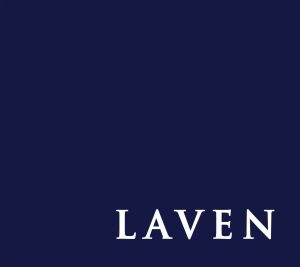Laven Takes a Look at the New Regulatory Environment for Offshore Funds
CIMA’s newly published Statement of Guidance
2014 brings a new regulatory environment to offshore funds, starting with the most recent guidance published by the Cayman Islands Monetary Authority (CIMA).
After an industry consultation with market professionals, last month CIMA released its Statement of Guidance (the “SOG”), applicable to governing bodies of investment funds in the Cayman Islands regulated by the Mutual Funds Law. Aimed at managers, general partners, trustees and board of directors of Cayman mutual funds (a definition which includes hedge funds), the SOG sets out what CIMA has concluded to be key corporate governance principles and best practice standards for sound and prudent governance. The guidance became effective on 13 January 2014. These principles apply as of the publication of the statement but represent more a general framework of operations rather than a strict code of conduct. Some amendments related to the enforcement of compliance with the SOG may be added in the future to the Mutual Funds Law.
Key principles enumerated in this document relate to oversight functions of the board of directors or the General Partner, who must ensure that the fund or the fund’s service providers are in compliance with applicable rules. This verification must be done on an ongoing basis based on reporting from the service providers, and the governing body must act to rectify any potential breach. The SOG also covers to director duties which must be conducted with “due skill, care and diligence”.
True to its name and being only 9 pages long, the SOG neither provides a prescriptive set of procedures nor purports to cover all aspects of a governing body’s functions. In strategising a fund governance framework, governing bodies are expected to exercise their own judgment in determining the extent to which the SOG’s stipulated principles would apply, taking into consideration the size, nature and complexity of the fund and factoring in elements such as the AUM, number on investors, nature of investment strategy and operations. By way of an example, notable aspects of the SOG mean that governing bodies are now expected to:
- Meet at least twice a year, or more often should the size, nature and complexity require, in person, via telephone or by video conference call.
- Identify, disclose, monitor and manage all conflicts of interest, as well as ensure that their conflicts of interest policy is clearly described in the fund’s offering documents.
- Ensure that offering documents contain sufficient information to enable prospective investors to make informed investment decisions.
Moving from Offshore to Onshore: Is the question on our minds?
In the same quarter, the Cayman Islands signed the FATCA Intergovernmental Agreement with the US as well as an agreement for the improvement of international tax compliance with the UK in what has been dubbed the ‘son of FATCA’.
For many, these – among other recent developments – have sparked debate on whether the Cayman Islands is still the fund domicile of choice. At Laven we have certainly seen a few redomiciliations as well as unfortunate liquidations over the past few years. Among other reasons to move away from the Cayman Islands and settle in the EU, opinions seemed to have factored in the AIFMD and its positive impact on opportunities for marketing and fund raising since July 2013.
As for long term prospects, market commentators are divided on the fate of the Cayman Islands. To some, the increased tax transparency in the Cayman Islands and subsequent need for greater substance and corporate governance, coupled with an appetite for onshore regulations, will prove tragic to its future. To others, the islands’ recent co-operation with the US and the UK on anti-tax avoidance as well as with 25 EU countries on AIFMD compliance is a sure sign of confidence that the no. 1 offshore domicile is keeping up with the changing industry.
Fortunately, commentators are in agreement that it is unlikely the short-term will see any immediate change in the Cayman – statistics show that 45% of hedge funds managed by SEC-registered firms are still domiciled in the Cayman Islands.




